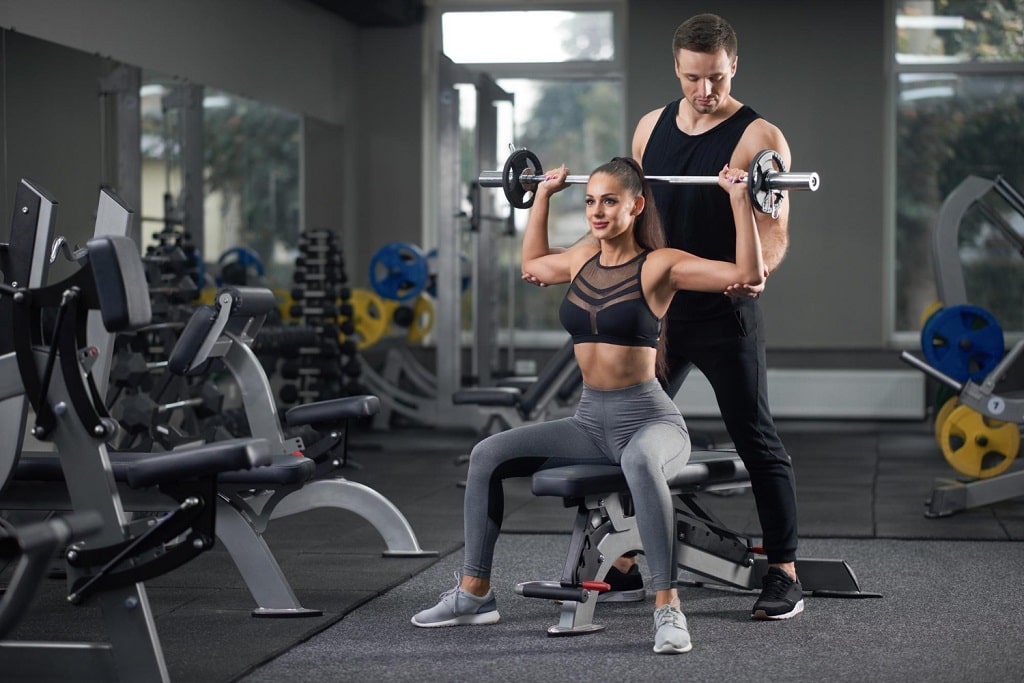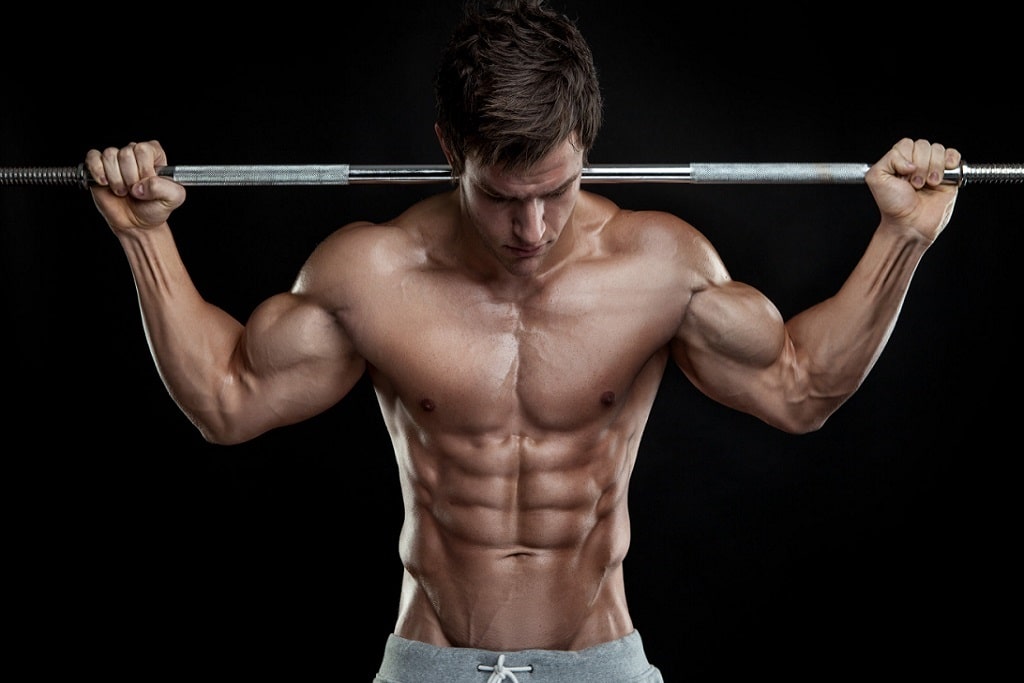Physical Fitness is vitally important for your overall health and well-being. Regular physical activity can help keep a person at a healthy weight, improve cardiovascular health, strengthen muscles and bones, and lower the risk of chronic diseases such as type 2 diabetes, heart disease, and certain types of cancer.
Exercise helps reduce stress, improve sleep quality and lift moods and mental health; it can also combine cardiovascular exercise, strength training and flexibility exercises for maximum fitness results.
Combining cardiovascular exercise, strength training, and flexibility exercises will allow individuals to reach optimal physical Fitness. Making physical activity a regular part of your lifestyle can dramatically affect your health and quality of life.
Physical Fitness To Build Stamina Naturally
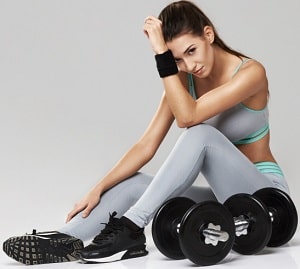 To stay motivated and committed to exercising regularly, find activities you enjoy doing that you enjoy doing long-term so that it becomes part of an ongoing fitness regimen.
To stay motivated and committed to exercising regularly, find activities you enjoy doing that you enjoy doing long-term so that it becomes part of an ongoing fitness regimen.
Maintaining physical Fitness is essential for overall health and well-being. A balanced diet that incorporates nutrient-rich whole grains, lean proteins, fruits and vegetables into your meals can provide vital energy to fuel workouts and enhance physical fitness levels.
Let’s take a closer look at some of the best foods to boost physical fitness levels and their specific benefits on your body.
Why We lose Physical Fitness?

Physical inactivity can lead to a decline in physical fitness levels. One common factor contributing to this decline is not engaging in regular physical activity.
Without regular exercise, your muscles and cardiovascular Fitness may weaken over time. A poor diet can also contribute to a loss of physical Fitness.
A diet high in processed foods and low in nutrients can result in weight gain, fatigue, and no energy. Additionally, lifestyle factors like smoking or excessive alcohol consumption can harm physical fitness levels.
Age also plays a role here as our bodies naturally become less efficient at using oxygen and building muscle mass as we age.
While it can be disheartening to experience this decline in physical Fitness, remember that with regular exercise and a healthy lifestyle, you can regain and maintain physical Fitness at any age.
12 Best Foods To Increase Physical Fitness
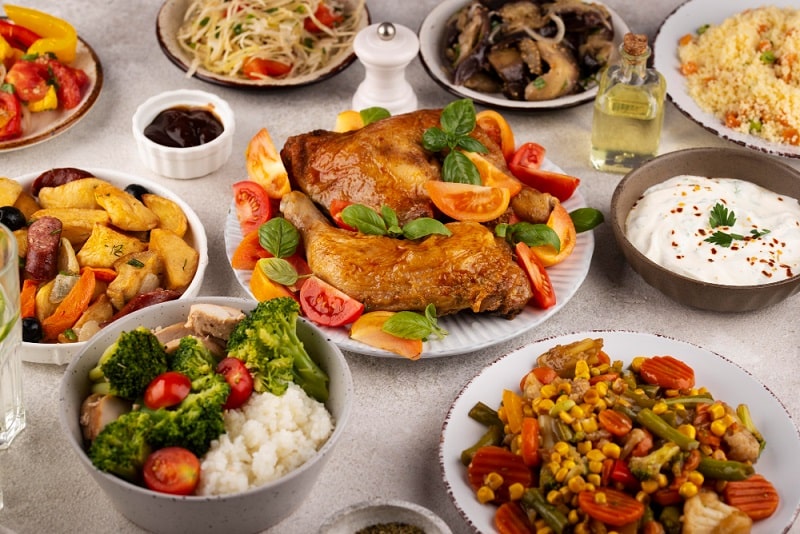
A healthy and balanced diet is an integral part of physical fitness success. Eating the right foods can fuel your workouts, promote muscle growth and repair, and improve overall health and well-being.
We’ll look at 10 top foods to include in your meals to boost physical performance. From protein-rich lean chicken to nutrient-dense spinach to antioxidant-rich blueberries – these foods offer numerous health advantages supporting your fitness objectives.
So whether you’re an avid athlete or simply trying to stay healthy, eating these nutritious foods will give your body the energy and nutrients it requires to reach those milestones!
#1. Quinoa
 Quinoa is a highly nutritious whole grain that’s gluten-free and high in protein and fibre.
Quinoa is a highly nutritious whole grain that’s gluten-free and high in protein and fibre.
Plus, it provides various vitamins and minerals like magnesium, iron, and zinc – making it suitable for people with diabetes as it helps regulate blood sugar levels.
Plus, its antioxidant content protects the body against free radical damage caused by free radicals.
Quinoa’s versatility makes it popular in dishes from breakfast bowls to salads to stir-fries; its mild nutty flavour and fluffy texture make it a popular substitute for rice or couscous in many recipes.
Read: Brain Sharpening Foods For Your Kids
#2. Eggs
 Eggs are an excellent source of protein, with one large egg providing over six grams. Furthermore, eggs contain other essential nutrients like vitamins A, D and B12, iron and selenium.
Eggs are an excellent source of protein, with one large egg providing over six grams. Furthermore, eggs contain other essential nutrients like vitamins A, D and B12, iron and selenium.
Furthermore, they contain healthy fats like omega-3 fatty acids, which aid brain health while decreasing inflammation within the body.
Contrary to popular belief, research has demonstrated that moderate egg consumption does not increase heart disease risks among healthy individuals.
Eggs have endless preparation possibilities – from boiling to scrambled to poached – making them staple ingredients in many cuisines worldwide.
Read: Health Benefits of Green Chillies
#3. Salmon
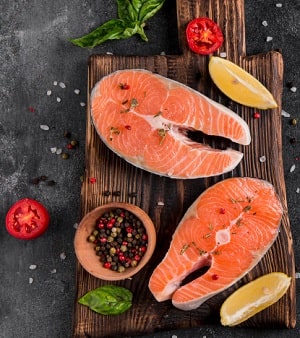 Salmon is one of the healthiest fish you can eat.
Salmon is one of the healthiest fish you can eat.
Its protein and nutrients offer various advantages to consumers, such as decreasing heart disease risk, improving brain health, and decreasing inflammation throughout the body.
Salmon is an excellent source of omega-3 fatty acids, essential fats that the body cannot produce alone. Studies have demonstrated that omega-3s may help lower blood pressure, enhance cognitive functioning and reduce the risk of certain types of cancer.
Salmon is also a great source of vitamin D, an essential nutrient many people lack. Vitamin D is essential in maintaining healthy bones and teeth and supporting the immune system.
Furthermore, salmon is versatile enough to be prepared in many ways for easy integration into a nutritious diet.
Read: Health Benefits of Cottage Cheese
#4. Sweet Potatoes
 Sweet potatoes are an excellent source of complex carbohydrates, providing sustained energy for physical activity to help fuel your workouts and keep you feeling full without the sugar crash.
Sweet potatoes are an excellent source of complex carbohydrates, providing sustained energy for physical activity to help fuel your workouts and keep you feeling full without the sugar crash.
Sweet potatoes are an excellent source of fibre, which aids digestion and promotes feelings of fullness. Plus, sweet potatoes contain essential vitamins and minerals like vitamins A, C, and potassium.
Vitamins A and C are essential for maintaining healthy vision, while potassium supports the immune system and promotes skin hydration.
Furthermore, sweet potatoes have many uses – roasting, mashing or baking them can make for a delicious addition to any meal – plus they contain potassium which helps regulate blood pressure and support muscle function.
Sweet potatoes also make great snacks because they can be roasted, mashed or baked for sweet and savoury dishes!
Read: Know About The General Motors Diet
#5. Potatoes
 Potatoes can be an excellent food to incorporate into your diet if you’re trying to increase physical fitness levels. Contrary to popular belief, potatoes contain complex carbohydrates, providing sustained energy during physical activity.
Potatoes can be an excellent food to incorporate into your diet if you’re trying to increase physical fitness levels. Contrary to popular belief, potatoes contain complex carbohydrates, providing sustained energy during physical activity.
Potatoes are also rich in potassium, an essential mineral for maintaining muscle function and helping prevent cramps during exercise. Furthermore, potatoes provide a good vitamin C source, boosting your immunity and speeding up recovery after workouts.
Potatoes are an incredibly versatile food that can be prepared in many ways, making them a tasty and convenient addition to any meal.
Just be mindful of portion sizes and opt for healthier preparation methods, like roasting or baking rather than frying, to maximize the nutritional benefits of this nutritious vegetable.
Read: 10 Fat Burning Foods to Add in Your Diet Today
#6. Blueberries
 Blueberries are an excellent food to incorporate into your diet if you’re trying to boost your physical fitness level. These delightful fruits are packed with antioxidants that can shield your body against damage caused by free radicals – molecules which accumulate during exercise.
Blueberries are an excellent food to incorporate into your diet if you’re trying to boost your physical fitness level. These delightful fruits are packed with antioxidants that can shield your body against damage caused by free radicals – molecules which accumulate during exercise.
Blueberries are also an excellent source of fibre, which aids digestion and keeps you feeling full for longer. Making them the ideal pre or post-workout snack, blueberries also contain essential vitamins and minerals like vitamin C, vitamin K, and manganese.
Vitamin C and K are both necessary for a healthy immune system. At the same time, manganese plays an integral role in connective tissue formation.
Enjoy blueberries on their own or incorporate them into smoothies, yoghurt or oatmeal – either way, they’ll provide an enjoyable and nutritious way to support your physical fitness goals!
Read: What Foods to Eat and not to Eat for Diabetes
#7. Almonds
 Almonds are an excellent food to boost your physical fitness level. These nutritious nuts contain the protein necessary for building and repairing muscle tissue.
Almonds are an excellent food to boost your physical fitness level. These nutritious nuts contain the protein necessary for building and repairing muscle tissue.
They contain healthy fats like monounsaturated and polyunsaturated fats, which may help lower cholesterol levels and reduce inflammation, ultimately improving overall well-being. Almonds are also an excellent source of fibre, which aids digestion and prevents constipation.
Almonds contain essential vitamins and minerals like E, magnesium, and potassium. Vitamin E is a potent antioxidant that shields the body against free radical damage.
At the same time, magnesium and potassium support healthy muscle function and blood pressure levels. Almonds make for an easy snack or addition to salads or oatmeal – providing nutrition in both conveniences!
So whether you enjoy them or add them to meals, almonds are a great way to support your physical fitness goals!
Read: The Hazards of Often Eating Fast Food
#8. Spinach
 Spinach is an excellent food to incorporate into your diet if you’re trying to increase physical fitness levels. This leafy green vegetable boasts numerous nutrients like vitamins A, C and K and iron, calcium and potassium that can benefit your overall well-being.
Spinach is an excellent food to incorporate into your diet if you’re trying to increase physical fitness levels. This leafy green vegetable boasts numerous nutrients like vitamins A, C and K and iron, calcium and potassium that can benefit your overall well-being.
Vitamin A is essential for healthy vision, while vitamin C helps support an active immune system and beautiful skin. Furthermore, vitamins K and iron support strong bones, while iron helps ensure oxygenation throughout the body.
Calcium and potassium are essential minerals for maintaining healthy muscle function and controlling blood pressure levels. Spinach also offers fibre, which aids digestion while leaving you feeling satisfied.
Whether added to salads, smoothies or omelettes, spinach is a delicious way to support your physical fitness objectives!
Read: Health Benefits of Fruit Juice
#9. Lean Chicken
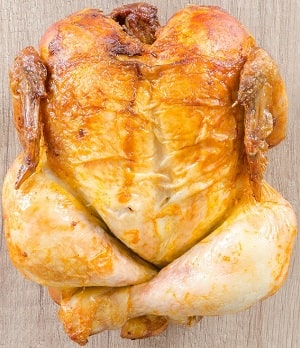 Lean chicken is an ideal food to incorporate into your diet if you’re trying to increase physical fitness levels.
Lean chicken is an ideal food to incorporate into your diet if you’re trying to increase physical fitness levels.
Not only does it contain high-quality protein, which aids in muscle-building and repair processes, but lean poultry also provides essential fatty acids necessary for optimal performance.
Lean chicken is low in fat and ideal for those trying to maintain a healthy weight. Chicken also provides essential vitamins and minerals like vitamins B6, B12, and zinc.
Vitamins B6 and B12 are essential for energy production and can help combat fatigue during exercise.
Zinc is integral in maintaining healthy immune function, aiding recovery after strenuous physical activity. Chicken is an incredibly versatile food that can be prepared in many ways, making it a delicious and convenient addition to any meal. Grilling, baking or stir-frying lean chicken breast offers delicious nutrition while aiding your physical fitness objectives.
Read: Java Plum Nutrition Facts, Nutrition Value, Benefits
#10. Oatmeal
 Oatmeal is an excellent food to incorporate into your diet if you’re trying to increase physical fitness levels.
Oatmeal is an excellent food to incorporate into your diet if you’re trying to increase physical fitness levels.
This whole grain food is packed with complex carbohydrates, providing sustained energy during physical activity.
Additionally, oatmeal contains fibre which aids digestion and keeps you feeling full for extended periods, making it a great option to fuel up before or after exercise.
Oatmeal is low in fat and a great source of protein, making it an ideal choice for those trying to maintain a healthy weight and build muscle.
Furthermore, oatmeal contains essential vitamins and minerals like B1, magnesium, and phosphorus. Vitamin B1 plays a significant role in energy production and helps to reduce fatigue during exercise.
Magnesium and phosphorus, essential minerals for bone formation and muscle function, can also be added to oatmeal for nutritional benefits. With fresh fruit, nuts or cinnamon added for flavour, oatmeal makes an excellent breakfast that supports your physical fitness goals!
Read: 5 Fruits That Boost Immunity!
#11. Greek Yogurt
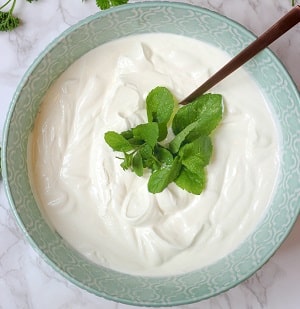 Greek yoghurt is a nutrient-rich food that can be an ideal addition to your fitness regime. It boasts high-quality proteins which support muscle growth and repair, making it a perfect post-workout recovery food.
Greek yoghurt is a nutrient-rich food that can be an ideal addition to your fitness regime. It boasts high-quality proteins which support muscle growth and repair, making it a perfect post-workout recovery food.
Greek yoghurt is an excellent source of calcium, essential for strong bones and teeth; vitamin B12 for energy production; and beneficial probiotics that support digestion and immunity.
Greek yoghurt is a nutritious and delicious food that can be enjoyed on its own or used as an ingredient in various recipes.
From smoothies to topping off the fruit with granola for breakfast on the go to using it instead of sour cream in recipes, Greek yoghurt offers numerous ways to support your physical fitness objectives.
Read: Tips To Follow A Healthy Diet Plan for Healthy Weight
#12. Brown Rice
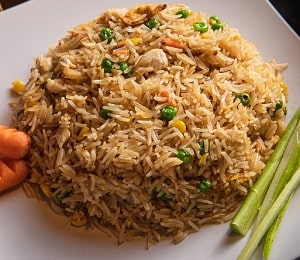 Brown rice is an incredibly nutritious food that can be an ideal addition to your diet if you’re trying to boost your physical fitness levels. Its complex carbohydrate composition provides sustained energy for physical activity, making it the ideal pre-workout meal choice.
Brown rice is an incredibly nutritious food that can be an ideal addition to your diet if you’re trying to boost your physical fitness levels. Its complex carbohydrate composition provides sustained energy for physical activity, making it the ideal pre-workout meal choice.
Brown rice is an excellent source of fibre, which can help you feel full and satisfied while aiding digestion. Furthermore, brown rice contains essential vitamins and minerals like vitamin B6 and magnesium for added nutritional benefits.
Vitamin B6 plays an integral role in energy production. It can help combat fatigue during exercise, while magnesium supports healthy muscle and nerve function. Brown rice is an incredibly versatile food, capable of being used in many dishes to support your physical fitness goals.
Whether you enjoy it as part of stir-fries, salads or as a side dish – brown rice provides nutritious and delectable fuel for workouts while increasing physical fitness levels.
More Related Posts:
- Foods To Avoid While Breast Feeding
- Why You Should Drink Gano Coffee Once in a Day
- 7 Foods That Reduce Stress and Anxiety
- 5 Eating Habits that can be making you fat
- How To Set Up Healthy Diet Plans For Weight Loss
